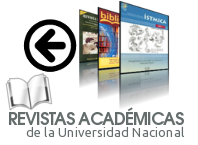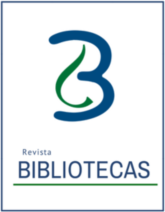Information and Communication technologies as a substitute of school libraries to address the needs and information competences at schools in Puerto Rico: limitations and lessons learned
Keywords:
School libraries, Schools without libraries, Teaching strategies, Library practices, Information competencies, Information and communication technologiesAbstract
Our society demand from our students skills and competencies that allows them to address challenges in an informed and effective way. In Puerto Rico, there are public schools whose students historically demonstrate a high academic achievement in the standardized tests. A considerable number of these schools do not have a library on their school grounds. This study was focused in unearthing the practices applied at these schools to address areas like promoting reading skills and the development of information competencies among its students. Through a qualitative approach, researchers interviewed 10 school directors from such schools. Results indicate that; 1) academic achievement at these schools are based in a collective and individual initiatives in which information and communications technologies play an important role; 2) there are no systematic effort to develop information competencies and :3) they reaffirm their desire and recognize the importance of having a library in their school grounds.
References
American Association of School Librarians & Association for Educational Communications and Technology. (1998). Information power: Building partnerships for learning.Chicago: American Library Association.
Baró, M. y Maña, T. (2013). Bibliotecas escolares: ¿un valor en alza?.El Profesional de la Información, 22 (2):106-112.
Blackett, K. y Klinger, D. A. (2006). Keeping current: Canadian studystrengthens the link between school library staffing and student achievement and reading enjoyment.School Library Activity Media Monthly,23(3): 56-58.
Figueras Álvarez, C. (2007). Factores que promueven o limitan la implantación de un programa de competencias de información (CI) como proceso e integrado al currículo: una mirada al caso de Puerto Rico. Acceso: Revista Puertorriqueña de Bibliotecología y Documentación,9. pp.17-31. Disponible enhttp://www.redalyc.org/articulo.oa?id=25620 541003.
Fundación SM. (2013). La transformación tecnológica y su impacto en la escuela puertorriqueña de hoy. Cataño, PR: Fundación SM.
Gobierno del Estado Libre Asociado de Puerto Rico. (1999). Ley orgánica del departamento de Educación Pública de Puerto Rico. Puerto Rico.Disponible en: http://www.lexjuris.com/LEXMATE/educacion/lexeducacion%201999.htm
Haycock, K.(2011). Connecting British Columbia (Canada) school libraries and student achievement: acomparison of higher and lower performing schools with similar overall funding.School Libraries Worldwide, 17(1): pp. 37-50.
House of Representatives Committees. (2011). School libraries and teacher librarians in 21st century Australia. Canberra: Commonwealth of Australia. Disponible enhttp://www.aph.gov.au/parliamentary_business/committees/house_of_ representatives_committees?url=ee/schoollibraries/report.htmKachel, D.E. (2011).
School library research summarized: A graduate class project. Mansfield, PA: School library & Information Technologies Department. Disponible en: http://sl-it.mansfield.edu/upload/MU-LibAdvoBklt2013.pdf
Lonsdale, M.(2003). Impact of school libraries on student achievement: a review of the research. Report for the Australian School Library Association. Melbourne, Victoria: Australian Council for Educational Research. Disponible en:http://www.asla.org.au/site/defaultsite /filesystem/documents/research.pdf
Marzal G., M. A., Cuevas C., A. y Colmenero R., M. (2005). La biblioteca escolar como centro de recursos para el aprendizaje (CRA). Congreso Virtual de Educación. Disponible en http://doteine.uc3m.es/docs/cuevascerverocive.pdf
OECD. (2014). Performance of Puerto Rico 15-Year-Old Students in Mathematics, Science, and Reading Literacy in an International Context.Programme for International Student Assessment (PISA), 2012. Mexico, D.F. : OECD.
Salaberria-Lizarazu, R. (2013). Educación sin biblioteca. El profesional de la Información, 22 (2).pp. 135-138.
Sánchez-Lugo, J. y Centeno-Casillas, K. (2014). Las competencias de información en la biblioteca escolar puertorriqueña: una exploración necesaria. Revista Interamericana de Bibliotecología, 37(1).pp. 35-46.
Scott, K. J., & Plourde, L. A. (2007).“School libraries and increased student achievement: What's the big idea?”. Education,2007, 127(3).pp. 419-429.
Shannon, D. M.(2009). “Principals' perspectives of school librarians”.School Libraries Worldwide,15(2.: pp. 1-22.
Downloads
Published
How to Cite
Issue
Section
License
Bibliotecas provide immediate open access to their content, based on the principle of facilitating research to the public free of charge and free of charge to promote the global exchange of knowledge.
The journal Bibliotecas is a publication hosted by a public higher education institution, which is supported by public resources. Since its inception, the magazine has offered all its contents free of charge without any restriction on the rights of: reading, downloading and printing in full text. Works published in libraries may be analyzed, quoted and reproduced in whole or in part, mentioning the original source.
The journal Bibliotecas is licensed under the Creative Commons Attribution - Non-Commercial - Share Equal, 4.0 International license; therefore, it is allowed to: share, copy and redistribute the material in any medium or format.

Este obra está bajo una licencia Creative Commons Atribución-NoComercial-CompartirIgual 4.0 Internacional.








